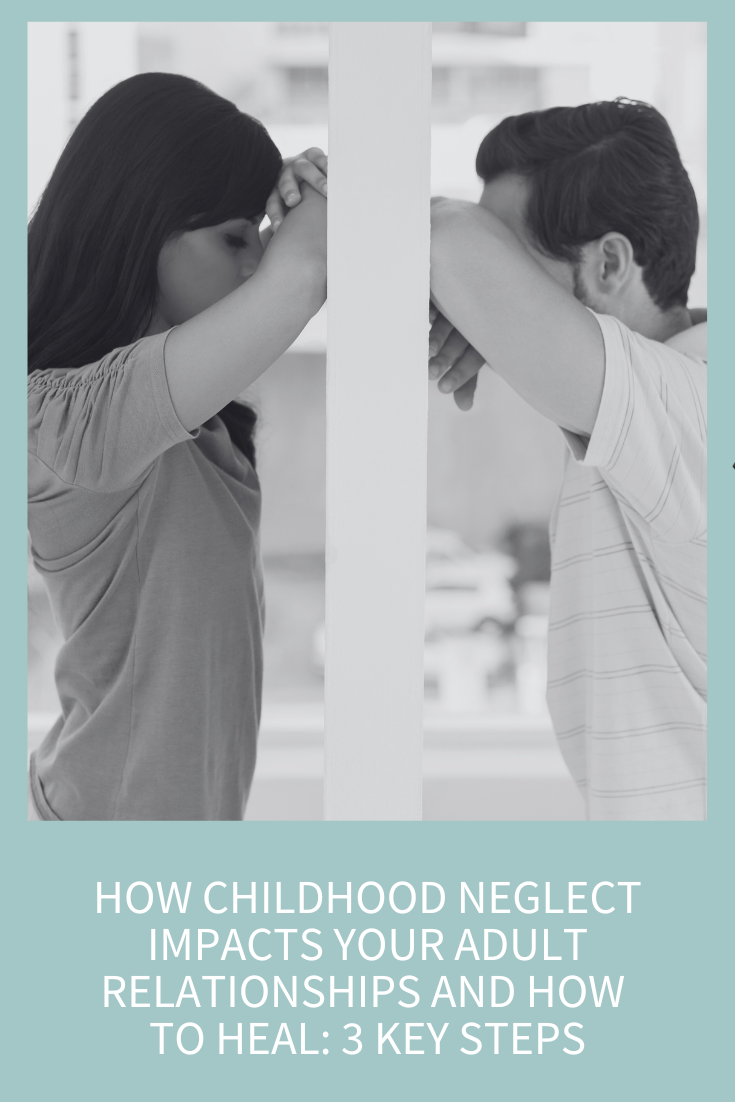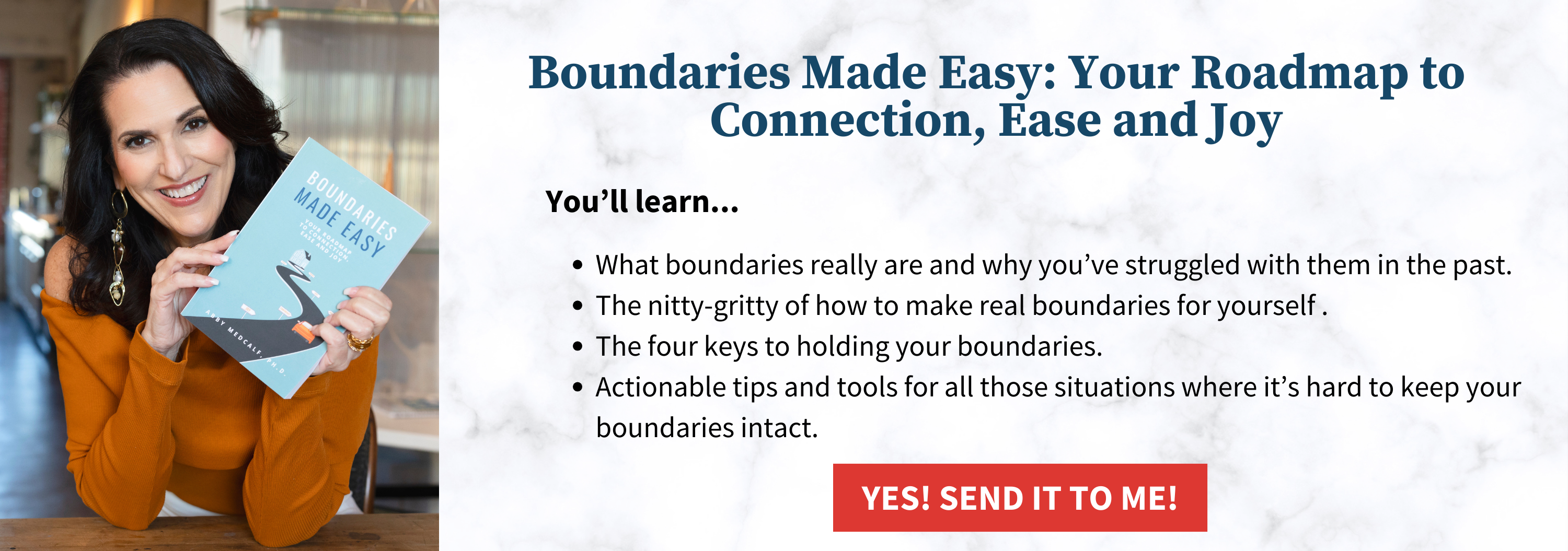
Many of my clients have issues today that relate back to being neglected as kids, but they’ve never realized that what happened to them was neglect. They say things like, “I had a roof over my head and food,” “My mom was there when I got home from school,” or they’ll even tell me they had a happy childhood. Growing up with neglectful parents isn’t always easy to identify. If you felt unseen, unheard, or unimportant as a child, you may be living with the long-term effects of childhood neglect. And, guess what? There’s a huge body of research that backs up how neglect in childhood affects your adult relationships and your mental health. Today, we’ll break down what neglectful parenting looks like, how you may be carrying the scars into your adult relationships, how to deal currently with your neglectful parents and most importantly, how you can start healing.
7-minute read
What Neglectful Parenting Looks Like
Let me say first that this is not an episode about blaming your parents for how you feel today as an adult. Instead, it’s a lesson in bringing some things into the light so you can better explain why you do what you do or feel the way you feel, so you can be more realistic and heal. And this isn’t to say that neglectful parents are bad people. Some may have been too overwhelmed by their own struggles to give you the emotional support and care you needed. Others might have lacked the skills to parent effectively. But no matter the reason, the impact on you as a child was real.
Neglectful parenting is defined as a consistent failure to meet a child’s basic emotional, physical, or educational needs. This doesn’t just mean physical neglect (like failing to provide food or shelter) but emotional neglect, too. Maybe your parents didn’t comfort you when you were scared, didn’t notice when you were upset, or simply didn’t show any interest in your life. This kind of neglect leaves a real mark on little developing brains and hearts.
Signs and Symptoms of Being an Adult who had Childhood Neglect
If you grew up with neglectful parents, you likely learned to rely only on yourself. The problem is that this led to you feeling isolated or disconnected from others as a kid, and then you grew into an adult who felt the same. Even in relationships, you’ll end up feeling like you’re on the outside, don’t really need other people, or some other level of disconnection.
Some of the signs I see the most often are:
- Difficulty trusting others: You learned early that people won’t be there for you.
- Low self-worth: If you grew up feeling unimportant, you may still carry that belief today.
- Fear of intimacy: Getting close to others may feel threatening because, deep down, you fear they’ll neglect you just like your parents did. This is, of course, mostly unconscious.
- Over-functioning or people-pleasing: You might work hard to take care of everyone around you, hoping to earn the love or validation you didn’t receive growing up.
How Childhood Neglect Affects Your Adult Relationships
Adult relationships require vulnerability, trust, and communication. For someone who has experienced neglect, these things can be especially difficult. You might find yourself in relationships where you’re either emotionally unavailable or overly needy, swinging between two extremes. You may struggle with trust, constantly fearing abandonment. Your communication style might be more reactive, passive, or defensive. All of these patterns can make it hard to create healthy, balanced relationships.
I’ve mentioned attachment styles many times before here on the podcast. If you haven’t checked out the last episode I did, it’s definitely time if this episode is hitting. Research shows that childhood neglect often leads to an insecure attachment style. Adults with an insecure attachment often struggle to trust others or feel safe in relationships.
Dealing with Neglectful Parents Now (Without Losing Your Mind!)
So, what do you do when your parents are still alive and you’re dealing with decades of built-up anger, resentment, or frustration? Here’s a fact: You can’t change them. But you can change how you deal with them.
I. Set Boundaries
Setting emotional and physical boundaries with your parents is crucial. You’re not that helpless child anymore. You’re an adult with the power to choose what kind of relationship you want with them. This might mean limiting contact or being clear about what behaviors you will and won’t tolerate. Research shows that healthy boundaries are key to your emotional well-being.
II. Let Go of the Fantasy
Many people with neglectful parents hold onto the hope that one day their parents will change and finally be the loving, supportive figures they’ve always longed for. Letting go of this fantasy can be painful, but it’s also liberating. This allows you to see your parents for who they are, not who you want them to be, which can help ease some of your frustration and anger.
III. Forgiving Doesn’t Mean Forgetting
Forgiveness doesn’t mean excusing your parents’ behavior or pretending everything is fine. It means releasing the hold their actions have on your emotions. Research has shown repeatedly that forgiveness can lead to more emotional stability and better mental health. You’ll be happier and more at peace when you learn to forgive.
Three Steps to Help You Heal from Childhood Neglect
Here are three steps you can start today to heal from the long-term effects of childhood neglect.
Step One: Practice Mindfulness and Recognize Your Patterns
You can’t change what you don’t recognize. Start paying attention to how you react in relationships. Do you pull away when things get too close? Do you overgive to others at the expense of yourself? There are many questions to non-judgmentally ask yourself as you work on upping your self-awareness and your moment-to-moment awareness of your thoughts and subsequent feelings.
Grab my FREE Mindfulness Starter Kit to make mindfulness a consistent habit in your life.
Step Two: Practice Self-Compassion
Healing from neglect means learning to give yourself the love and care you didn’t receive as a child. Be kind to yourself. Self-compassion has been shown to improve emotional regulation and promote resilience. Speak to yourself with the love and care you deserve. If you make a mistake, be forgiving. You are learning how to parent yourself.
Step Three: Commit to Working on This Weekly
Healing old wounds like this, as well as changing thinking and behaviors that have likely been around for decades, isn’t going to happen from listening to wonderful me for an hour or watching Reels on IG about the topic. It’s going to come from a concerted effort and commitment. You might try to see a therapist for a while to work on this specific issue.
Modalities like Cognitive Behavioral Therapy (CBT) or Attachment-Based Therapy can help you untangle the emotional knots caused by childhood neglect. If you haven’t explored therapy, now is the time. It’s an investment in your well-being and your relationships. If you can’t afford or access therapy (or if you think it’s BS for some reason), you might make a commitment to spend one hour a week journaling, reading, or practicing the action tips I outline here.
Wrap Up
Growing up with neglectful parents may have shaped your past, but it doesn’t have to define your future. By recognizing the signs, setting boundaries, and focusing on healing, you can break free from the negative patterns that have held you back. You deserve healthy, loving relationships, and it all starts with the relationship you have with yourself. You’ve got this! Follow these steps and give yourself the love and care you needed back then and still deserve now.
Resources for How Childhood Neglect Impacts Your Adult Relationships and How to Heal: 3 Key Steps
You Might Not Realize You’re Suffering from Unhealed Trauma
How Childhood Trauma Affects Relationships
How Attached Are You In Your Relationship?
How Your Attachment Style Affects Your Personal Relationships
How to Forgive Someone Who Hurt You in 5 Steps
The Forgiveness Masterclass with Dr. Abby Medcalf
Four Ways to Be More Self-Aware
How to Make Mindfulness a Consistent Habit
Is Self-Compassion The Secret to a Happy Relationship?
Learn to Hold Boundaries with Healthy Selfishness









